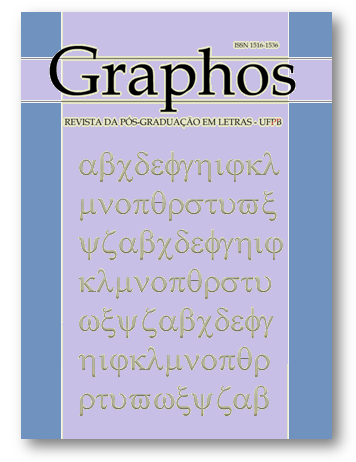No fim, o gato e eu: abandono e solidão em As horas nuas de Lygia Fagundes Telles
Keywords:
As horas nuas, ageing, LonelinessAbstract
The writer Lygia Fagundes Telles points out in her work that she is connected to literary aesthetic without missing connection to her time and, consequently, its social transfor-mation. This can be observed on her novel As horas nuas (1989), which brings im-portant questions to the her as a writer, for example the human abandonment, frustrated love, and, therefore, loneliness. Thereby, this study attempts to understand how the pro-cess of aging reflects on the work of the main character of the novel, Rosa Ambrósio, as an actress – a cruel profession which very often youth is highly valued. It also analyses how the main character deals with loneliness and the fact of being left by her lover and her family.
Downloads
References
BOSI, Alfredo. História concisa da literatura brasileira. 35.ed. São Paulo: Cultrix, 1994. BRANDÃO, Junito de Souza. Dicionário Mítico - etimológico da mitologia grega. 3. ed. Petrópolis, Rio de Janeiro: Vozes, 1986 v. I e II.
GIDDENS, Anthony. A transformação da intimidade: Sexualidade, amor e ero-tismo nas sociedades modernas. Trad. M. Lopes. São Paulo: UNESP, 1993.
LAMAS, Berenice Sica. Lygia Fagundes Telles: imaginário e a escritura do duplo. Porto Alegre: Universidade Federal do Rio Grande do Sul, 2002. Tese de Doutorado.
PLATÃO. O Banquete: o simpósio ou do amor. 3. ed., Trad., introdução e notas de Pinharanda Gomes. Lisboa Guimarães Editores, 2003.
TELLES, Lygia Fagundes. As horas nuas. São Paulo: Companhia das Letras, 2010. ZOLIN, Lúcia, Osana. Crítica feminista. In. Teoria literária: abordagens históricas e tendências contemporâneas. Org. Thomas Bonnici; Lúcia Osana Zolin. Maringá, 2003. p. 161 a 184.







